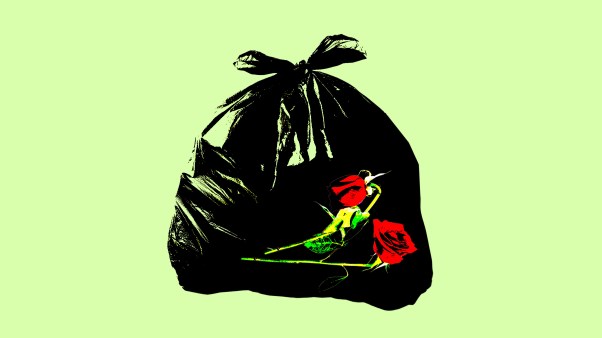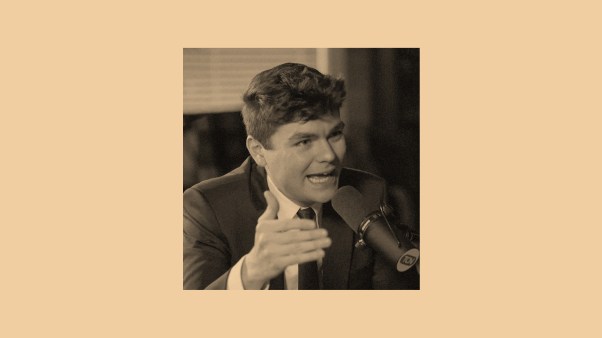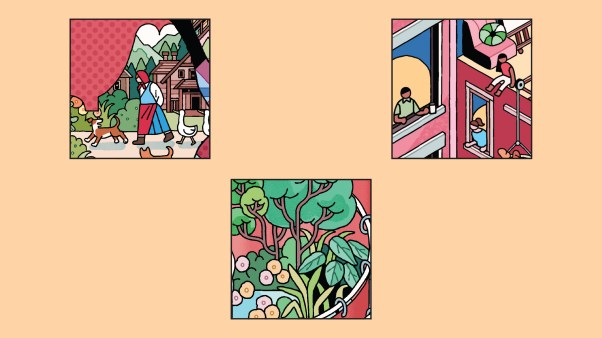The church fathers called Easter, “Pascha,” a word derived from the Hebrew word, Pesach, which means Passover, a name pointing to Jewish origins for this Christian festival. Therefore, to better understand the nature and practice of Easter, it is helpful to look at the Jewish Passover as it was practiced when the Christian church began.
Passover commemorated Israel’s redemption out of slavery in Egypt—a dramatic display of God’s saving action in history. Israel was commanded to preserve the memory of this action forever by means of an annual feast. Quite likely, by the first century A.D. the Passover meal had a set form to follow. Certain things had to be done in order that the Passover might be celebrated properly, for every action had its special meaning. Everyone, even the servant, was to eat reclining, as this was the Roman custom for free men. They ate the feast in the night, because it was in the night that the Lord passed over his people. The food included a Passover lamb that had been sacrificed, unleavened bread, and bitter herbs. When the food was brought in, the son would ask his father why this night was different from all other nights. The father would then instruct his son, reading and explaining the Passover story from Deuteronomy. Rabbi Gamaliel is quoted as saying that in order to fulfill the Passover, the verses concerning three things must be explained: “ ‘Passover’—because God passed over the houses of our fathers in Egypt; unleavened bread—because our fathers were redeemed from Egypt; bitter herbs—because the Egyptians embittered the lives of our fathers in Egypt” (Mishna, Pesahim 10.5).
The meaning of the Passover was more than a simple commemoration of God’s past deliverance of Israel from Egypt. It also included a sense of present personal involvement. Those who partook of the annual meal participated in the events of the Exodus: “In every generation a man must regard himself as if he came forth himself out of Egypt” (Mishna, Pesahim 10.5). This idea of personal involvement is seen clearly in the words of an ancient Passover hymn entitled, Dayenu. It concludes with these words: “Then how much more, doubled and redoubled, is the claim the Omnipresent has upon our thankfulness. For he did take us out of Egypt, and execute judgments on them, and judgments on their gods, and slay their first-born, and give us their substance, and tear the Sea apart for us, and bring us through it dry, and sink our oppressors in the midst of it, and satisfy our needs in the desert for forty years, and feed us manna, and give us the Sabbath and bring us to Mount Sinai, and give us the Torah, and bring us into the Land of Israel, and build us the House of his choosing to atone for all our sins.”
In addition, the ancient Passover celebration probably included another significant aspect of redemption: future final redemption of Israel. Rabbinic tradition included such sayings as the following comment on Exodus 12:42: “In that night they were redeemed, and in that night they will be redeemed in the future.” This future redemption was closely associated in the minds of the Jews with the coming of the Messiah.
Very likely the earliest Christians continued to keep the Jewish Passover: the synoptic writers agree that the Passover season was the time of Jesus’ arrest and crucifixion. John, seemingly, is even more specific, asserting that Jesus was sentenced to die at about the sixth hour of the day of preparation—the very time when the Jews were preparing for the feast of Passover by killing the paschal lamb. Early in the church’s history Christians designated Jesus as the Lamb of God, and the significance of this title was fully articulated by Paul when he wrote: “Christ our Passover was sacrificed for us” (1 Cor. 5:7). And from the Book of Acts it is clear that Christians did not immediately abandon all their Jewish practices. Although the early Church continued to celebrate the Passover, it became infused with new meaning because of the redemptive acts of Christ that took place during Passover.
During the second century, disagreements arose over when to celebrate the Pascha. Some Christians wanted to and did celebrate Pascha on the fourteenth of Nisan, the traditional Passover date, irrespective of the day on which it fell, just as their Jewish ancestors had done for centuries before them. Others—the vast majority of Christians—celebrated Pascha on the Sunday immediately following the fourteenth of Nisan, for on that day their Lord completed their redemption by his resurrection. Although the early churches disagreed on when to celebrate the Pascha, they primarily agreed on the elements to be included and on the meaning of the celebration. For most Christians the paschal liturgy included a fast, whose length varied with different communities, and an all-night vigil which may have included Scripture readings, a sermon (see the March 24, 1978, issue, pp. 23–26), prayers, baptism, and the Eucharist.
For all early Christians the meaning of this celebration was similar to that of the Jewish Passover. Above all else, the Pascha was a celebration of redemption. The redemption of the Jews from Egypt typified the believer’s redemption from sin, with the paschal lamb being Christ. Melito of Sardis wrote, “For he was led as a lamb and slaughtered as a sheep; he ransomed us from the ruin of the world as from the land of Egypt, and freed us from the slavery of the devil as the hand of Pharaoh, and sealed our souls with his own Spirit and the members of our bodies with his own blood” (Homily, 67). He continued: “This is he who rescued us from slavery to freedom, from darkness to light, from death to life, from oppression to an eternal kingdom, and made us a new priesthood and a chosen people forever” (Homily, 68). These words are almost identical with the words spoken in the Jewish Passover celebration: “He brought us out from bondage to freedom, from sorrow to gladness, and from mourning to a festival-day, and from darkness to great light, and from servitude to redemption” (Mishna, Pesahim, 10.5). The similarity of these two passages pinpoints how the Pascha took from the Passover its meaning as that festival where God’s redemption was celebrated.
The meanings of baptism and the Eucharist for early Christians also show that the Pascha was, in its essence, celebration of redemption. Early believers saw baptism as that act by which you died with Christ to the old way of life, and rose to a new life, a life united to Christ and his body, the church. So baptism was an active experiencing of the redemption celebrated in the Pascha.
This was true also of the Eucharist. When the early Christians celebrated the Eucharist they not only remembered the historical events of the death and resurrection of Christ. They experienced immediate fellowship with the resurrected Lord. For in the eucharistic meal the early Christians not only looked back to the Lord’s redemptive work—the events of his life, death, and resurrection—but also they personally experienced these events through the living presence of the victorious Lord in their community (Matt. 18:20). And at the same time they looked forward to his return when he would establish his kingdom in its fullness. So Pascha, taking its meaning from Passover, was at the same time a celebration of Christ’s historic work of redemption and participation in those events by the believers.
We are becoming mere observers of Christ’s redemptive acts, and not participants in them.
As the early Christians celebrated the Pascha, they knew that their redemption came about through the sinless life of Christ, his death, his resurrection, and his ascension. All of these isolated events were celebrated on one single night: the early Christian Pascha was a festival that united the distinct elements of God’s plan of redemption and celebrated them as one glorious whole.
But the passage of time changed Pascha to Easter, and it changed the nature of the festival from an eschatological celebration that embraced past, present, and future, to a historical one that emphasized the individual events. The triumphal entry of Jesus into Jerusalem, and the other events of Christ’s last week on earth—each assumed major significance. Even sites where these events took place were given special attention and reverence. Thus the one great act of redemption was disjointed as day, place, and happening were put into a historical framework. For example, we concentrate on the Passion of Christ on Good Friday and on his resurrection on Easter Sunday.
I believe these changes have presented a serious impediment to worship for anyone who reverently approaches the Easter season. If Easter now focuses attention chiefly on the past historical events of Christ’s passion, as I suspect it does, these events may become separated from each other and locked in time. Are we in danger of becoming a mere observer of Christ’s redemptive acts and not a participant in them?
Can Easter ever again be the joyful celebration of God’s unified work of redemption that it once was? We must see it as a celebration of redemption and by faith we must expect to experience that redemption personally and in community. No change for the better is likely, however, unless we grasp the true nature and importance that the Pascha had for the early believers.
G. Douglas Young is founder and president of the Institute of Holy Land Studies in Jerusalem. He has lived there since 1963.










